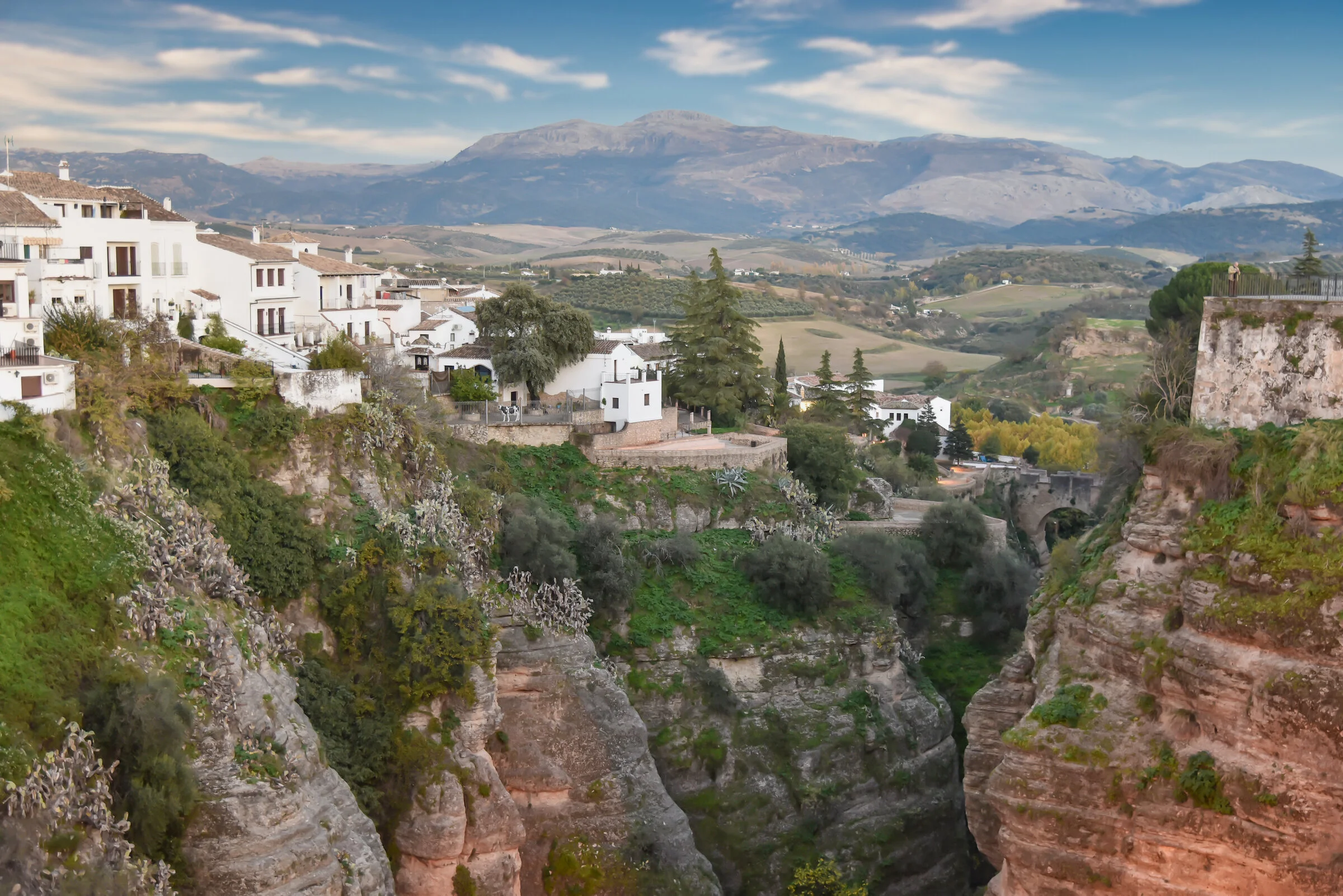A Short History of Spain- Part 5: The Reconquest and its Legacy
Spain has always been a battlefield; a battlefield where tactics, ideology, culture, and faith are tested as historical prototypes. Augustus and his legions got a taste of stalemate delivered by a tribal warrior culture in the Cantabrian Alps, foreshadowing the Empire’s bloody and frustrating future in untamed Central Europe. Hitler’s air forces used Spain as a battle lab to polish the tactics of total war in a fully developed industrial age, while the Soviet Union implemented their own disastrous Iberian experiments in violent ideology, presaging the Cold War’s proxy imperialism. Today, we witness new battles in Spain. Battles that test the durability of free-market democracies under the weight of political polarization. New battles that force a reckoning with the modern concept of nationhood and the limits of sub-state autonomy.
Arabic Lamps on Display on the streets of Granada
As I consider how to approach a discussion of the Reconquest, this theme of Spain as a battle lab (both real and metaphorical) is front and center for me. While it’s simple enough to define the Reconquest as the slow re-Christianization of the Peninsula, interpreting it is more difficult. In my opinion, its most fundamental legacy is the emergence of ideological extremism. It was a debutante ball for the extremism that has continued to play itself out through the current conflict in the Middle East and our 9-11-inspired operations in Afghanistan. It also presaged much of the ongoing 21st Century debates in Spain about the nature of “being Spanish”, and the relative value of “the other” (a theme that I have touched upon throughout this series).
The long period of the Reconquest leading up to the events of 1492 is critical to understanding Spain today. Spanish Historian Claudio Sanchez-Alvarez states clearly that, “Without the Reconquest, our modern history would be inexplicable.” We will return to this epoch frequently, especially as we tackle events in Spain during the 20th Century.
While armchair history tends to amalgamate Islamic Spain and the Reconquest, doing so obscures the fact that Islamic Spain (Al-Andalus) through its first 350 years was not extremist at all. I think I made this clear in my most recent installment in this series. However, once this golden age of Muslim rule came to end, Islamic Spain entered into what is known as the Taifa period. Taifas were essentially mini-califates reflecting the Peninsula’s political fragmentation. Seville, Zaragoza, Valencia, Granada, and Toledo each became independent centers of political and cultural power. Toledo would be especially important as it was the first of these taifas to be re-conquered and thus (through the School of Translators) would serve as the point of production for so much lost classical knowledge. This fragmentation, however, would have a darker side.
The Reconquista was not a battle, or a campaign, or an ideology. It can best be described as centuries of civil war between Spaniards (religion immaterial). Civil war is almost always associated with political power, even if religion or ideology influence the violence. An iconic interpretation of this political angle can be appreciated in the persona of Spain’s greatest hero of the era, El Cid. Contrary to myth, the real Cid was more mercenary than Christian warrior. He spent a majority of his professional life fighting for the Taifa of Zaragoza in its conflict with both Christian and Islamic antagonists. I say this not to diminish his historical impact, but as a reminder that he was not in the business of killing Muslims out of ideological zeal.
View of the old Moorish Bridge accross the Guadalevín River in Ronda
This state of intermittent political conflict among and between the emerging Christian kingdoms and the taifas was strangely “business as usual”. Although religion was certainly a fundamental source of identity at the time, these were not wars of hate. However, as we move into the 11th Century, two things would happen that would bring a tragic and unstoppable ideological conflict into the picture. First, otherwise enlightened taifas began inviting North African Berber warrior tribes onto the Peninsula (ostensibly as mercenaries). Without wading into theology (which I’m not qualified to do), I will simply say that the Berbers had a more conservative interpretation of the faith then the Iberian Muslims had. Inevitably, these Berbers began usurping political power from their Iberian co-religionists, meanwhile imposing severe restrictions on Christians and Jews living in the taifas.
The timing of this emerging Islamic extremism was not good because it coincided with equally concerning developments in Rome. The year 1088 brought us a new Pope, Urban II. Urban faced a number of challenges inside the Vatican, and perhaps to distract his opponents he agreed to advocate military support to Byzantium which was under siege by the Seljuk Turks. Furthermore, Urban determined that the only true way to truly puncture this existential threat to Christianity was to wrest Jerusalem itself from Islamic control. These efforts would result in a long series of military operations that we know today as the Crusades.
Why did this matter in Spain? In 1123 the Muslim Taifas (Moorish Kingdoms) in Spain were officially named by the Vatican as targets of the Crusades. This meant that Christians fighting on the Peninsula would receive the same benefits and dispensations available to those fighting in the Holy Lands. This changed everything, as Christians from all over Europe began their warrior pilgrimages to Spain, for the specific purpose of killing Moors. Now Spain’s sporadic political civil wars were replaced by a more unified struggle of ideological violence. There could be no negotiated peace. Wars of ideology are settled by attrition.
Soon the taifas began to fall, eventually leaving Granada as the final Moorish hold-out. Remarkably, it survived alone for over 200 years, protected by the hostile terrain of the Sierra Nevada mountains. (I might also note that Granada was paying a healthy tribute to the Christian powers at its borders.) When it did fall in1492 (that tremendous year of change), it did not do so as the practical result of a military operation. It fell as “a sign of Christian providence”. It became rocket fuel for what came next: the disastrous expulsion of the Jews, the Inquisition, the discovery of a new world, the birth of an empire, and the inevitable intellectual and economic decline that go always go hand-in-hand with theocratically-driven government.
How Spain became a prototypical breeding ground for religious intolerance is a story that deserves more time than I have today, but surely the Iberian Crusade played a critical role. The Reconquista gave birth to the unified nation state that we know today. Spain carries the scars.


